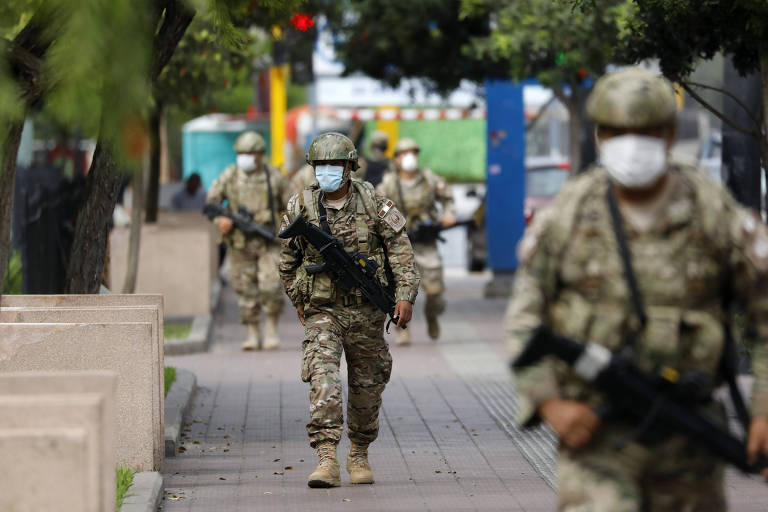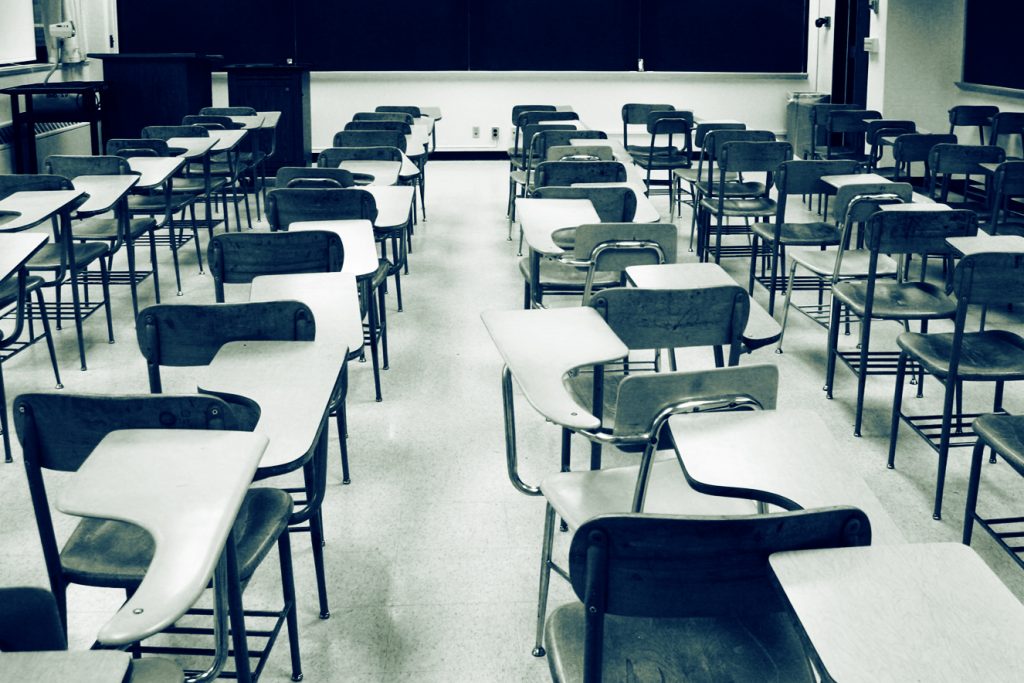RIO DE JANEIRO, BRAZIL – Faced with the pandemic spread of the new coronavirus (2019-nCoV), more and more countries in South America are restricting mobility and closing borders.
In Peru, President Martín Vizcarra declared a national emergency on Sunday. Since Monday, a curfew has been in force, as already imposed in Italy, Spain, France, and other countries after China: All residents will be subject to home quarantine.

Cultural venues, restaurants, offices, and stores will remain closed. Exceptions are hospitals, grocery stores, and drugstores. Leaving the home is only allowed for visiting them or for the care of particularly vulnerable people.
The army is mobilized to enforce compulsory quarantine. In addition, on Tuesday night, the borders were closed and national air services were suspended. Before that, all flights to and from Europe and Asia had already been suspended for 30 days. Interregional bus transport has been restricted. In Lima, the central city highway was temporarily closed.
The number of infected individuals in the Andean state increased to 86 cases on Monday. Despite relatively low case numbers, the Andean state acted swiftly and decisively: Major events were canceled as of Wednesday. The summer holidays for all educational institutions have been extended until March 30th.
According to many health experts, swift action by the authorities is the only right way to proceed. The Peruvian health system is insufficiently equipped for a pandemic. Economically, many people are also not prepared for a long and severe outbreak of the disease.
As many as 70 percent of the working population are in casual employment and have no social benefits such as health care or continued payment of wages in case of illness. The virus also exposes other social grievances: Only 22 percent of the population has access to running water.
In the course of the health ministry’s campaigns to contain the virus, protests by residents of the mining town of Cerro de Pasco gained new momentum. They have been camping outside the Ministry of Health for a month now, demanding medical treatment.
They – especially children – had been exposed to high levels of lead in their blood as a result of water pollution from the nearby silver mine.
Other South American countries are slowly following suit in their efforts to protect themselves from the coronavirus pandemic. In addition to Peru, only Ecuador and Argentina have so far taken similarly far-reaching measures. Ecuador has also imposed a full curfew since Tuesday.

In Argentina, the borders were closed for 15 days starting Monday. School lessons have been suspended, cultural events have been canceled. Venezuelan President Nicolas Maduro ordered “social quarantine” in all states on Tuesday after 17 cases of coronavirus infection were confirmed. In Bolivia, de facto president Jeanine Áñez banned all events involving more than 100 people. Flights from Europe and Iran to Bolivia were suspended as of Wednesday.
Chile, where President Sebastian Piñera had long downplayed the threat of the virus, took the first strict measures on Monday and began closing borders after 155 cases of coronavirus were confirmed – the highest infection rate in South America in relation to the total population. Nevertheless, offices, restaurants, and shops will remain open for the time being.
In Brazil, the most affected country in absolute terms with 200 people infected, President Jair Bolsonaro drew attention when he attended a protest on Sunday with several hundred participants – even though he himself is a suspected case.
The President and his far-right allies, such as the evangelical Bishop Edir Macedo, continue to question the authenticity of the virus.
Colombia is also gradually taking measures against the spread of the virus. More and more people are wearing protective masks or gloves in public areas, tourist spots are sparsely visited and the otherwise constantly overcrowded pubs in most cities are empty on weekends.
Since Monday, schools, universities, kindergartens, museums, and sports facilities have been closed until further notice. Health Minister Fernando Ruiz also ordered the closure of all public mass gatherings as well as discos, bars, and cafés. He further announced that meetings of more than 50 people are banned. All 24 national parks are also closed.
The government has already banned foreigners from entering the country since Monday. Exceptions include diplomats and foreigners with a permanent residence permit. Colombians and foreign residents must be kept isolated for 14 days after entry. The German Embassy in Bogotá reports that the measure is in force until May 30th.
Air traffic to and from Europe will likely be subject to severe restrictions. It is also recommended that “all German tourists currently in Colombia to contact their airline as soon as possible in order to clarify when and how the return flight is possible”.

The Colombian Congress and Senate sessions were suspended until April 12th. Sessions would have started Tuesday, but are suspended while emergency measures are being considered. In addition, all courts have been closed and ongoing trials adjourned, leading to massive criticism, particularly from detainees.
Under the massive crisis management regime, they will have even fewer opportunities to demand their dignified treatment, according to a spokesperson for the prisoners in the Bogotá detention facility in an interview. As was the case in Bogotá earlier, the administrative district of Cundinamarca declared a public emergency after the first case of a viral infection was recorded.
According to Governor Nicolás García, the case concerns a 33-year-old man who returned to the country last Friday from Spain with his family.
In both departments, more than 70 percent of public sector employees were sent to work from home, and only virtual meetings are held. Shortly before this, Bogota’s mayor Claudia López had declared a public emergency for the capital.
She assured that this measure would serve to allocate more resources to dealing with emergencies. Measures would also be introduced to protect the elderly and the homeless. On Monday afternoon, 54 cases of the coronavirus were recorded in Colombia.
On Sunday, the Attorney General’s Office criticized the controls carried out at the El Dorado international airport in Bogota. On March 14th, the authorities noted that the health staff was insufficient, particularly during rush hour. According to the migration authority, an average of 34 flights arrive during this time and people entering the country would have sneaked past the controls.
Social organizations continue to call for protests, which are planned for March 25th but are strongly criticized on the web. Until a few days ago, the virus was rather banalized in public debates and internet platforms.
Now, fear of mass panic prevails in many discussions. In addition, many people fear that curfews and restrictions will have a massive economic impact on the poorest in particular, who have no insurance for their losses.

